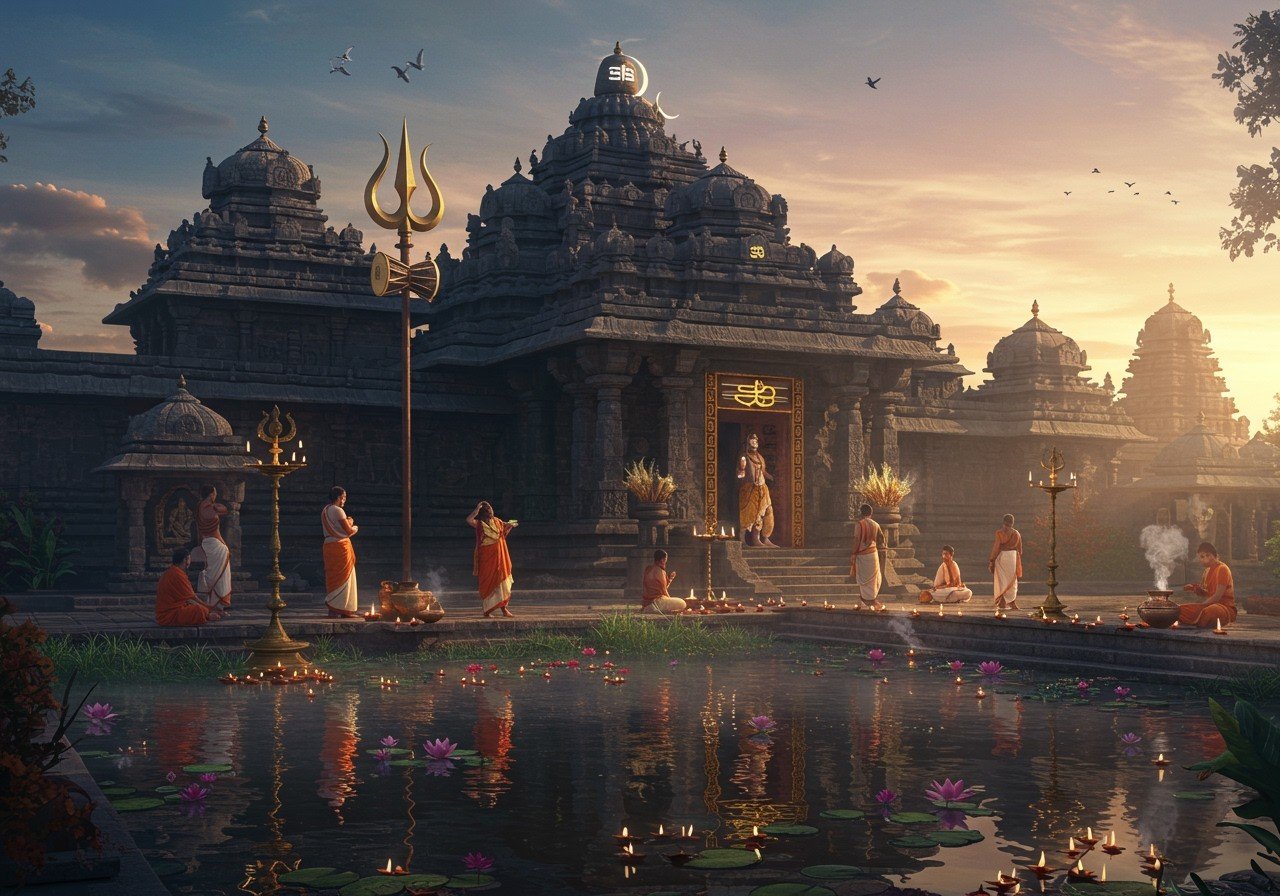
Embarking on a pilgrimage to a Shiva temple is more than just sightseeing; it’s a deeply spiritual and culturally enriching experience, resonating with the heart of Hindu tradition. Lord Shiva, revered as the destroyer and transformer, holds a profound place in our mythology. These temples, often architectural marvels adorned with intricate carvings, serve as sacred spaces where devotees connect with the divine. For culturally rooted Indians like us, Shiva temples offer solace, a link to our heritage, and a pathway to spiritual growth.
Locating Shiva Temples: A Modern Approach
Finding a Shiva temple near you is now easier than ever, thanks to digital resources. Online maps and temple-specific websites offer valuable information. In major cities, you’ll find prominent temples like the Someshwara Temple in Bangalore, steeped in history and cultural significance. Don’t overlook the charm of lesser-known temples, though. They often provide a more intimate and tranquil spiritual experience. Understanding the geographical and historical context of each temple enriches your visit, as many are located in places of significant religious importance. Planning your route and checking travel options, whether public transport or road routes, ensures a smooth and convenient journey.
Preparing for Your Temple Visit: A Guide to Respectful Practices
Planning your temple visit thoughtfully ensures a more fulfilling experience. Check the temple timings beforehand, especially during festivals or auspicious days. Dressing modestly is a mark of respect; traditional attire is often appreciated. When participating in rituals, consider bringing simple offerings like flowers or incense. For authentic and high-quality puja items, you can explore the selection available online at poojn.in. This ensures you have everything you need while supporting traditional practices. Being mindful of peak visiting times helps you avoid crowds and enjoy a more peaceful atmosphere.
Bangalore’s Shiva Temples: Exploring Sacred Spaces
Bangalore is home to numerous revered Shiva temples, each with its unique aura. The Shivoham Shiva Temple, with its majestic towering statue, creates a truly captivating spiritual atmosphere. Every temple holds its own cultural significance, reflected in its architecture and the stories it holds. Festivals like Maha Shivaratri bring an added dimension of energy and devotion, drawing devotees from near and far. The surrounding areas often come alive during these times, with local markets and eateries offering a taste of the region’s vibrant culture.
Honoring Tradition: Temple Etiquette and Customs
Respecting temple customs is key to a meaningful spiritual experience. Removing your footwear before entering is a sign of humility. Performing pradakshina, the clockwise circumambulation around the sanctum sanctorum, symbolizes devotion. Chanting and participating in prayer sessions create a sense of shared spiritual connection. Temple priests are often available to guide you through the rituals and customs. Maintaining silence preserves the serene atmosphere of the temple. Offerings like bael leaves, milk, and flowers hold symbolic meanings in worship, deepening your connection to the traditions.
Planning Your Pilgrimage: Tips for a Smooth Journey
Best Time to Visit: Generally, October to March offers pleasant weather for temple visits across India. However, specific temples like Kedarnath (May-June & Sept-Oct) or Mahakaleshwar (year-round) have their ideal times.
Planning Your Route: India’s Shiva temples are spread far and wide. A well-planned itinerary ensures efficient travel between chosen destinations.
Accommodation: For remote temples like Kedarnath or Somnath, booking accommodations in advance is crucial. Consider visiting Kapila Theertham near Tirupati for a unique experience.
Temple Research: Understanding a temple’s history, significance, rituals, and timings enhances your visit.
Temple Etiquette: A Sign of Respect
Dress Code: Dress modestly, covering shoulders and knees. Traditional attire is welcomed, while shorts and revealing clothing are best avoided. Some temples may have specific requirements for men. You can find appropriate attire at Poojn.in.
Purity: Bathing or showering before visiting a temple signifies bodily purity.
Footwear: Remove your shoes at designated areas before entering the temple premises.
Silence: Maintain a quiet atmosphere inside the temple, refraining from loud conversations.
Photography: Photography may be restricted in certain areas. Check for guidelines to avoid disruptions.
Local Customs: Each temple has unique rituals and customs. Observing and respecting them enriches your experience.
Offerings: Pure and appropriate offerings like flowers or fruits are common expressions of devotion. You can purchase authentic offerings online at Poojn.in.
Reverence: Fold your hands as a mark of respect when entering the inner sanctum. Accept the bindi as a symbol of blessing. Avoid touching sacred objects without permission. Do not point your feet towards deities.
Additional Considerations: Leather items are generally not allowed. Some restrictions might apply to women during their menstrual cycle. Avoid bringing food or chewing gum inside. Consume prasad in designated areas.
Chanting and Rituals: Reciting Shiva mantras or participating in temple rituals allows you to fully immerse yourself in the spiritual ambiance. Many temples offer special pujas and aartis. Check with the temple authorities for timings and participation details. Poojn.in also provides beautiful murtis of Lord Shiva for your home altar.
During Your Visit: Practical Tips
Ideal Times: Mornings and evenings are generally the best times to visit for a more peaceful experience.
Washing: Washing hands and feet before entering the temple is customary.
Parikrama: Performing pradakshina, the clockwise circumambulation, is a significant ritual.
Theertham and Prasadam: Receive theertham (holy water) and prasadam (blessed food) with your right hand.
Hydration: Especially in warmer climates, remember to stay hydrated. Carry water, particularly if you are visiting temples in South India.
Pooja Essentials for Your Visit: Conveniently Available on Poojn.in
For your Shiva temple visits, consider enhancing your spiritual experience with authentic puja items conveniently available on Poojn.in. From Rudraksha malas and bilva leaves to pure copper kalashes and brass bells, you’ll find a range of high-quality products to make your worship more meaningful. Poojn.in also offers dhoop, incense, cotton wicks, Gangajal, and white cotton vastram, all quality-checked and sourced authentically. Visit www.poojn.in or contact us at 03369029784 or WhatsApp: 9476142738 for all your puja needs. We offer pan-India delivery and expert guidance, making your spiritual journey easier and more fulfilling. Explore our collection of Lord Shiva murtis and enhance your home worship as well.
Embracing the Spiritual Journey: More Than Just a Visit
Visiting a Shiva temple is a profound experience, connecting you with India’s rich spiritual heritage and the transformative energy of Lord Shiva. Whether you choose a grand temple in a bustling city or a serene sanctuary off the beaten path, each visit offers a moment of reflection and renewal. Embrace the serene atmosphere, participate in rituals with reverence, and cherish the sense of peace that these sacred spaces provide. May your temple visits deepen your spiritual understanding and bring you closer to the divine.


